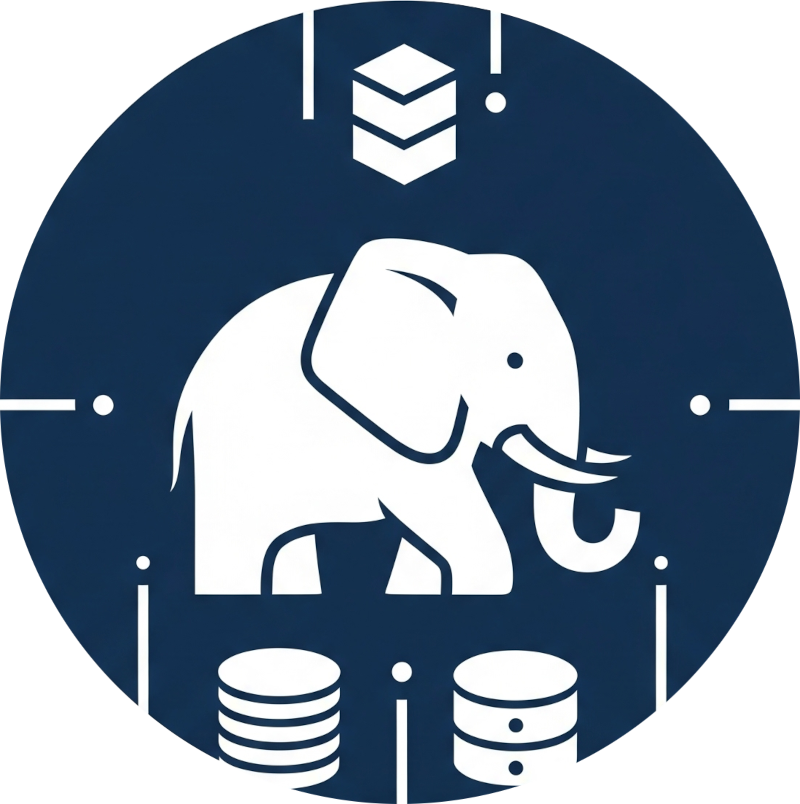PG-201

| Formats: | Asynchronous |
| Blended | |
| Online | |
| Onsite | |
| Part-time | |
| Level: | Intermediate |
| Prerequisites: | |
| Recommended Knowledge | |
| Solid Understanding of Relational Databases. | |
| Basic ETL/ELT Concepts. | |
| Familiarity with Command Line Tools. | |
Formats: We offer our training content in a flexible format to suit your needs. Contact Us if you wish to know if we can accommodate your unique requirements.
Level: We are happy to customize course content to suit your skill level and learning goals. Contact us for a customized learning path.
Data Warehousing with PostgreSQL (PG-201)
Leveraging PostgreSQL for Powerful Business Intelligence in South Africa
For businesses in South Africa looking to establish a reliable and scalable data warehouse, PostgreSQL offers a compelling solution. Renowned for its robustness, extensibility, and strong SQL compliance, PostgreSQL isn't just for transactional workloads; it's a mature and increasingly popular choice for building powerful analytical platforms that drive informed decision-making.
At Big Data Labs, located in Randburg, Gauteng, we understand the critical role of a well-designed data warehouse. This Data Warehousing with PostgreSQL course is meticulously designed to equip data architects, data engineers, and BI professionals with the knowledge and practical skills to design, implement, and optimise data warehouses leveraging the robust capabilities of PostgreSQL for analytical workloads.
Target Audience
This course is designed for professionals involved in building and managing data infrastructure for analytics:
Data Architects
Responsible for designing and planning data warehousing solutions using PostgreSQL.
Data Engineers
Building and maintaining ETL/ELT pipelines and the PostgreSQL data warehouse infrastructure.
BI Developers & Analysts
Who need to understand and query the PostgreSQL-based data warehouse for reporting and analysis.
Cloud Data Professionals
Implementing data warehouses on cloud platforms using PostgreSQL services (e.g., RDS, Azure Database).
Prerequisite Skills
To benefit fully from this course, participants should have:
- Solid Understanding of Relational Databases: Familiarity with database concepts, SQL querying, and basic data modeling principles.
- Basic ETL/ELT Concepts: Understanding the principles of data extraction, transformation, and loading.
- Familiarity with Command Line Tools: Comfort with navigating and executing commands in a terminal environment.
What One Will Learn (Learning Outcomes)
Upon completion of this course, you will be able to:
- Understand Data Warehousing Principles: Grasp the concepts, architectures, and best practices for building effective data warehouses.
- Design Data Models for Analytics: Create star and snowflake schemas suitable for analytical querying in PostgreSQL.
- Implement Data Warehouses with PostgreSQL: Leverage PostgreSQL's features for efficient analytical workloads.
- Optimise Query Performance: Apply advanced techniques for writing efficient analytical queries and tuning PostgreSQL.
- Manage and Scale Data Warehouses: Understand considerations for data loading, indexing, and scaling PostgreSQL systems.
- Integrate with BI Tools: Connect your PostgreSQL data warehouse to popular business intelligence applications.
Target Market
This course is relevant for organisations in **South Africa** across various industries that rely on data-driven decision making and require robust analytical infrastructure:
Business Intelligence Teams
Seeking to enhance their analytical capabilities and reporting performance using PostgreSQL.
Data Analytics Departments
Needing scalable and performant data warehousing solutions for in-depth analysis on PostgreSQL.
Organisations Utilising Cloud PostgreSQL
Implementing or managing data warehouses on cloud PostgreSQL services (e.g., AWS RDS, Azure Database).
SMEs and Startups
Looking for a robust, open-source, and cost-effective data warehousing solution.
Course Outline: Data Warehousing with PostgreSQL
This course provides a comprehensive understanding of data warehousing principles and the practical application of PostgreSQL for building high-performance analytical databases.
Module 1: Data Warehousing Fundamentals & PostgreSQL Basics for DW
- Introduction to Data Warehousing: Concepts, benefits, and common use cases.
- Data Warehouse Architectures: Understanding different models and components.
- Dimensional Modeling: Star schema, snowflake schema, and design principles.
- ETL vs. ELT: Understanding the differences and selecting the right approach.
- PostgreSQL Architecture Overview relevant to analytical workloads.
- Data Types and Data Modeling in PostgreSQL for Analytical Workloads.
Module 2: Advanced PostgreSQL for Analytical Workloads
- Indexing Strategies for Analytical Queries in PostgreSQL (B-trees, BRIN, GIN, GiST).
- Partitioning Techniques in PostgreSQL for managing large tables (declarative partitioning).
- Common Table Expressions (CTEs) for complex query structuring.
- Window Functions for advanced analytical calculations (ranking, moving averages, etc.).
Module 3: PostgreSQL Performance Tuning and Optimization
- Understanding the PostgreSQL Query Planner and using `EXPLAIN ANALYZE`.
- Optimising PostgreSQL Configuration Parameters for data warehousing.
- Techniques for Query Optimisation in PostgreSQL for large datasets.
- Materialized Views for accelerating common aggregate queries.
- VACUUM and Autovacuum for maintaining performance and preventing bloat.
Module 4: Data Loading and ETL/ELT with PostgreSQL
- Data Ingestion Strategies for PostgreSQL (e.g., `COPY` command, `INSERT` statements, `pg_dump`/`pg_restore`).
- Working with Foreign Data Wrappers (FDWs) for accessing external data sources.
- Implementing ETL/ELT pipelines for PostgreSQL data warehouses.
- Handling Data Transformations and Data Quality in the data warehouse context.
Module 5: Scaling and Managing PostgreSQL Data Warehouses
- Backup and Recovery Strategies for PostgreSQL data warehouses.
- Monitoring PostgreSQL Data Warehouses: Key metrics and tools.
- Scaling PostgreSQL for Growing Data Volumes and User Loads (read replicas, logical replication, sharding concepts).
- Cloud-Based PostgreSQL for Data Warehousing (e.g., AWS RDS/Aurora PostgreSQL, Azure Database for PostgreSQL, Google Cloud SQL for PostgreSQL).
Module 6: Real-world Applications and Case Studies
- Integrating PostgreSQL DW with popular BI tools (e.g., Metabase, Power BI, Tableau).
- Using PostgreSQL extensions for enhanced analytical capabilities (e.g., TimescaleDB for time-series, PostGIS for geospatial).
- Case studies of successful PostgreSQL data warehouse implementations in various industries.